Binging on Idiocy
All fat people overeat in the minds of people prejudiced against fat. They spend hours a day doing nothing but lounging about and gorging on junk food. No evidence to the contrary will ever be enough.
There are people who have genuine difficulties with overeating, either with or without purging. Such people will binge on “comfort” foods for hours, consuming thousands of calories in one sitting. They will display other symptoms of eating disordered behavior, such as secrecy, withdrawing from friends and family, measuring oneself, and so on.
However, in order to be diagnosed with an overeating problem, you need to establish that the patient, in fact, overeats.
So, how is overeating defined? How many calories constitute a binge?
According to the Mayo Clinic, binge-eating disorder may include the following symptoms:
- Eating large amounts of food
- Eating even when you’re full
- Eating rapidly during binge episodes
- Feeling that your eating behavior is out of control
- Eating a lot even though you’re not hungry
- Depression
- Anxiety
- Frequent dieting, possibly without weight loss
- Frequently eating alone
- Feeling depressed, disgusted or upset about your eating
Here is another discussion about binge eating from Kids’ Health (Warning: Fat hate ahead).
Type “How many calories constitutes a binge?” into Google and you will find people asking this same question on message boards.
A valid point can be made that the act of binging is less about calories and more about process. Did you eat way more than normal in a short period of time? Were you secretive and guilty about it? Did you feel sick after? Was it a special occasion or is this something that happens regularly? All of this is very, very true.
However, there is a pitfall in not having a ballpark calorie count, as it is all too easy misclassify someone as having a binging problem. Basically, anyone that looks fat or who has gained weight is assumed to have overeaten.
Of course, naturally thin people can and do binge eat. Assuming that binge eating is a disease of fat people ignores the problem thin patients have and marginalizes their experiences. It becomes difficult to find competent help or even get people to believe them.
This is still assuming that we can actually diagnose binge eating disorder accurately, whether you are fat or thin, but especially if you are fat.
Our culture has turned eating into a sin and a chore, such that people who ”admit” (like you admit to a crime) enjoying food are seen as having a weakness. People who overeat on holidays, or who plow through a pint of ice cream just because they feel like it, sometimes feel pressure to act ashamed of it. They preface their admission with statements like, “I know it’s bad, but…” or “It’s not like I do it all the time, but…”
It is looked down on, especially for women, to fill their plates or ask for seconds. Forget about dessert unless it’s really a special occasion and you get the low-cal variety. There is the constant fear of looking like a pig.
Now that our society has significantly lowered the threshold at which ordinary eating behavior becomes piggish, how do we diagnosed someone as having a genuine binge eating disorder?
All my life, I was taller, heavier, and more muscular than most other kids my age. I also ate well. I ate a lot and I ate many different things. I felt no shame about my eating or my size. Somehow, I had failed to internalize gender norms about body and food, and my mother and sister sought desperately to change that.
They glared at me when I asked for food, especially sweets, or when I asked for seconds or thirds. Over the years, I continued to eat, continued to grow, and continued to disobey commands to be properly embarassed at myself. This, naturally, led to hiding my eating from them, but eating 100% normally in front of others.
In their minds, I had a “problem.” I “couldn’t stop” eating and I hid it because I was “secretly” ashamed. My size was proof positive that I had this problem. So their attempts to intervene only intensified.
Eventually, I became convinced of it myself. I had a problem with overeating because my family treated me as though I did, and when I tried to resist that treatment that only reaffirmed the diagnosis in their minds. Plus, I was getting larger all the time during my teen years, which is, of course, normal.
I started seeking help for my “problem” only to find out that I had no problem. My mother and sister had the problem, but since I admitted to mine, now I have that stain on my character.* See? Even she admits it! Yet, she won’t do anything about it. She must really be sick!
When I hear someone confess to a problem with overeating, especially if it’s a fat person, I question it. I think our society sets fat people up for a self-fulfilling prophecy. We shame them from eating normally, so they must do it in secret. If they eat publicly, they must eat restrictively, which sets them up to binge later on. We encourage them to feel a deep sense of shame for eating at all. So I’m not convinced that a lot of people diagnosed with BED actually have it. I’m sure they believe they have it, but that is society’s fault, not theirs.
So what exactly in binge eating?
Who the hell knows?
*No eating disorder should be a stain on anyone’s character, but in the minds of many people, that’s exactly what it is. I just chose language that reflects that attitude. I do not espouse it myself.




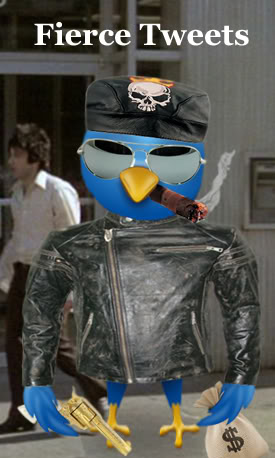
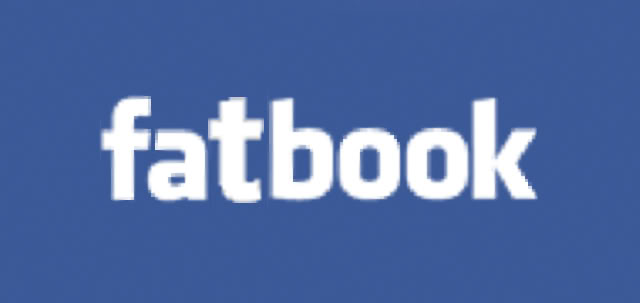


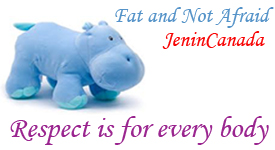

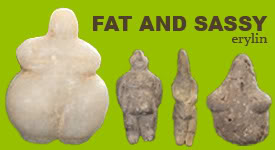
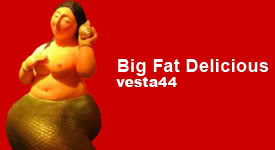




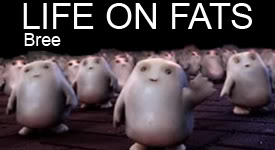
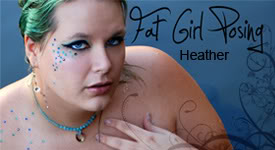


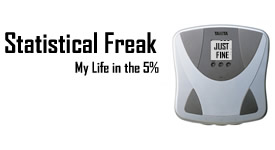

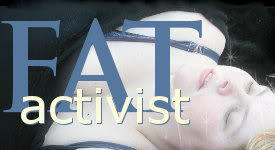
I think there is the point in which hunger stops and the point in which we thin hunger stops. They are often at two very different points in our meal. I think if you eat enough in one session to be able to call yourself “stuffed” than you have overate. If you feel that pressure in your tummy or have to undo a button or a belt notch then you have gone too far. If you find yourself starting to sigh as you force yourself to consume the last few bites on the plate, than that also qualifies.
I have done it many times. Now I try to be mindful of how much I am eating and I stop at the point of being able to say I can efficiently carry on for another few hours.
*think hunger stops
What I have noticed, just for myself, is that my history of yo-yo dieting (and that failed WLS) has totally screwed up my ability to tell when I’m hungry and when I’m full. I can be hungry, but if I’m busy and don’t eat, the hunger goes away for hours, then returns with a vengeance. Then I don’t know how much I need to eat to assuage that hunger without it being so much that I’ll be uncomfortably full.
I can eat what would be a normal meal for someone who has never dieted and think at the time that I’m comfortably full, and 5 minutes later, I’m so full I feel ill. Other times, I can eat the same amount of food and still be hungry at the end of the meal and want more. It makes trying to eat intuitively a challenge, to say the least, and accusations of bingeing because the amounts I eat can vary so much would be traumatic if I were a person who cared about that kind of thing (good thing I’m past caring about that).
Repeated dieting can mess with one’s ability to tell if/when one is hungry and how much one needs to eat to assuage that hunger, I think, and that should be taken into consideration when talking about BED.
How does “Frequently eating alone” count as a sign of overeating? I live alone so I eat alone all the time. Does this make me a binger? It sounds like they borrowed something from the signs of alcoholism (drinking alone) without thinking about it.
Nova, I think it means when you want to eat alone because you don’t want people to see what you eat, how much, etc. Shamed eating.
I have to disagree with the calorie content though. At my worst with body hate, I’d gorge on vegetables and salads, figuring through the tears and shame that “I was a good girl now”. Obviously you know what happens with a lot of veggies and fruit, but that made me proud that I might’ve been losing weight through that means. That’s just f$&ked up way of thinking.
Oh, gosh, that reminds me of something. Way back when I was just moving out of the diet mindset but not yet really into FA, I recall reading the first Susan Powter book (she appealed because she appeared to be anti-diet-industry, although what she was flogging was still, basically, a diet), and I believe she said something in there like: ‘Saying you have to deal with your binge eating disorder before you can get healthy (i.e. thin) is an excuse - just move more and eat low fat anyway, and then, if you binge, at least you’ll be binging on healthy stuff!’
Luh…what?! It didn’t register with me at the time, perhaps because I was still in that weight-loss mindset and I didn’t know anyone who’d had BED and therefore didn’t appreciate how serious it could be, but I hope to God someone who did know called her up on that. Stop the insanity, indeed.
I went back and re-read the Mayo Clinic post and noticed that that the list is the symptoms of binge-eating disorder, not overeating, so I changed it to clarify. Sorry, I didn’t make proof that accurately at first! But either way, the list is ridiculous. What are “large amounts of food”? To a chronic dieter, that can be normal amounts of food. Feeling out of control, depressed or disgusted about your eating are all common among the weight- and dieting-obsessed population. And couldn’t binge-eating be a symptom of depression and anxiety, rather than vice versa?
It seems like the criteria for BED is slightly arbitrary to a lay person, such that you could diagnose ANYONE with BED if you, yourself, have exhibit disordered eating, which those around Joanna may be doing. But the whole “eating alone and in shame” thing doesn’t seem to be caused by any actual eating disorder, but by a culture that heaps shame on people who chose to eat without restriction.
And I cannot for the life of me think of what the hell it is called when the treatment itself causes the disease, rather than the treatment reacting to the disease. Dammit, where my smart people at?
Peace,
Shannon